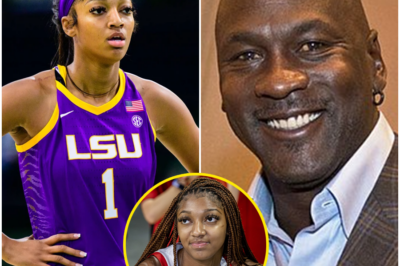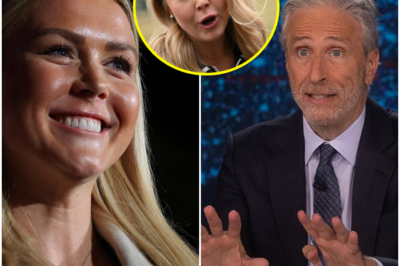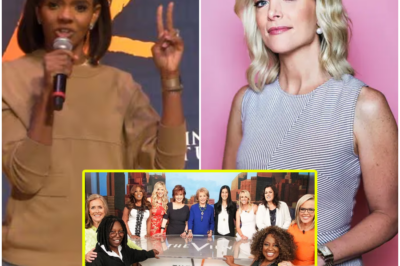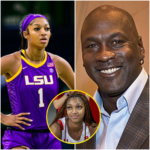BREAKING NEWS: Riley Gaines Laid Into Brittney Griner for Kneeling During the National Anthem—“You Don’t Have to Sing, But You Need to Show Respect for the Country That Saved You From a Russian Gulag” Fans Are Divided Over Riley’s Bold Statement. What Sparked This Heated Exchange Between the Two Athletes? Get the Full Story Behind the Controversial Comments and What It Means for Their Public Image!

BREAKING NEWS: Riley Gaines Laid Into Brittney Griner for Kneeling During the National Anthem—“You Don’t Have to Sing, But You Need to Show Respect for the Country That Saved You From a Russian Gulag”
In a surprising and controversial turn of events, Olympic gold medalist Riley Gaines has called out WNBA star Brittney Griner for her decision to kneel during the National Anthem. The heated criticism came after Griner’s recent protest, which sparked a nationwide debate about athletes’ demonstrations during the anthem. Gaines, known for her outspoken views on patriotism and respect for the flag, didn’t hold back when expressing her disapproval of Griner’s actions.
In a public statement that quickly went viral, Gaines lashed out at Griner, saying, “You don’t have to sing or anything, but you need to show some respect for the country that saved you from a Russian gulag.” Gaines’ sharp words were directed at Griner’s decision to kneel during the anthem, a protest that has been a point of contention for many athletes and fans alike.
The context behind Gaines’ remarks stems from Griner’s high-profile detainment in Russia, where she was arrested on drug charges in February 2022. After months of diplomatic efforts, Griner was released in December 2022 as part of a prisoner exchange between the U.S. and Russia. Since her return to the United States, Griner has been open about her desire to use her platform to advocate for social justice issues, including racial inequality and police brutality. As part of this advocacy, she has continued to kneel during the National Anthem, a form of protest that first gained attention through NFL player Colin Kaepernick in 2016.
However, for Gaines, Griner’s kneeling during the anthem is a step too far. “We’re talking about a woman who was saved by this country—rescued from a Russian gulag—and still chooses to protest the very country that fought to bring her home,” Gaines continued. “It’s disrespectful to all the people who fight every day for the freedoms we enjoy, including our athletes. When you’re saved, you show gratitude.”
Gaines’ comments have sparked a wave of reactions from both supporters and critics. Some fans of Gaines applauded her for standing firm in her beliefs and calling out Griner for what they saw as hypocrisy. “Riley is absolutely right. This country fought to bring Brittney home, and she should show more respect for that,” one commenter tweeted.
Others, however, have criticized Gaines for her harsh judgment, pointing out that athletes like Griner have the right to protest in the way they see fit. “Just because someone’s been rescued doesn’t mean they have to stop fighting for what they believe in,” one supporter wrote. “Brittney Griner’s protest is her right, and it’s disappointing that Riley Gaines doesn’t see that.”
The divide over this issue has reignited the ongoing debate about the role of athletes in activism and how much responsibility they have to honor symbols of national pride, like the flag and the anthem. For many, the anthem protests are seen as a powerful way for athletes to highlight systemic inequalities and injustice, while others view the act as a disrespectful protest against the country that allows them to succeed.
As the controversy continues to unfold, the spotlight is firmly on both Gaines and Griner, with their respective fans and critics weighing in on the discussion. The question remains: How much should athletes be expected to balance personal activism with national symbols? Is there room for protest within the framework of respect for one’s country, or should protest be limited to certain situations?
While Gaines and Griner have not yet publicly responded to one another, it’s clear that their differing views on activism and patriotism will continue to fuel debates for the foreseeable future. What happens next in this heated exchange may determine the future of activism in sports and the evolving role of athletes as political figures.
For now, fans are left grappling with the question of whether the need for protest outweighs the desire for unity and respect in the face of national challenges.
News
BREAKING: Basketball Legend Michael Jordan Criticizes Angel Reese, Claiming She Lacks Real Skills and Focuses on Flaunting Sexy Photos Online Instead of Improving Her Game! Fans Are Stunned by Jordan’s Public Remarks—What Sparked This Controversial Critique, and How Is Angel Reese Responding? Get the Full Scoop on the Shocking Statement from the Basketball Icon and What This Means for Angel Reese’s Career Moving Forward!
BREAKING: Basketball Legend Michael Jordan Criticizes Angel Reese, Claiming She Lacks Real Skills and Focuses on Flaunting Sexy Photos…
SHOCKING: Jon Stewart Mocked Karoline Leavitt but Immediately Faced Her Ruthless Comeback—A Statement That Exploded All Over American Social Media! What Sparked This Fiery Exchange Between the Two? Fans Are Left Stunned by Leavitt’s Powerful Response to Stewart’s Criticism. Get the Full Scoop on the Explosive Moment That Has Everyone Talking About Karoline Leavitt’s Bold and Unapologetic Reaction!
SHOCKING: Jon Stewart Mocked Karoline Leavitt but Immediately Faced Her Ruthless Comeback—A Statement That Exploded All Over American Social…
CBS Unleashes a $700 Million Bombshell—Megyn Kelly and Candace Owens Set to Rival The View with Explosive New Morning Show! Sources Claim It’s the Boldest Daytime TV Move Yet, Already Stirring Wild Reactions from Liberals. What’s Really Behind This Jaw-Dropping $700 Million Deal, and How Will It Change the Landscape of Morning Television? Get the Full Scoop on CBS’ Game-Changing Move!
CBS Unleashes a $700 Million Bombshell—Megyn Kelly and Candace Owens Set to Rival The View with Explosive New Morning…
People Suddenly Understand the Real Reason Kimberly Guilfoyle’s Fiancé Dumped Her After Unfiltered Photo Exposes Shocking Details! Fans Are Stunned by the Unseen Side of Guilfoyle’s Relationship. What Was Revealed in the Photo, and Why Did It Lead to the Breakup? Get the Full Story Behind the Unfiltered Image That Changed Everything About Kimberly Guilfoyle’s Personal Life and Her Relationship with Her Fiancé.
People Suddenly Understand the Real Reason Kimberly Guilfoyle’s Fiancé Dumped Her After Unfiltered Photo Exposes Shocking Details! Fans Are…
Elon Musk Announces DOGE Will Save the U.S. Government Over $150 Billion by Cutting Waste and Fraud in Fiscal 2026! Fans Are Stunned by His Bold Prediction. How Will DOGE Achieve This? Get the Full Inside Scoop on Musk’s Plan!
Elon Musk Announces DOGE Will Save the U.S. Government Over $150 Billion by Cutting Waste and Fraud in Fiscal…
BREAKING: GMA3 Faces Major Shakeup—ABC Boss Plans to Ax DeMarco Morgan and Eva Pilgrim by Summer! What’s Behind the Shocking Rumors, and Why Are the Popular Hosts Being Let Go? Fans Are Left Stunned by the Potential Changes to Good Morning America’s Lineup. Get the Full Story on What’s Behind the Shakeup, What This Means for GMA, and Who Might Be Replacing Them!
BREAKING: GMA3 Faces Major Shakeup—ABC Boss Plans to Ax DeMarco Morgan and Eva Pilgrim by Summer! What’s Behind the…
End of content
No more pages to load












